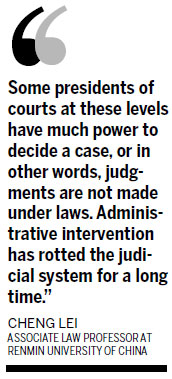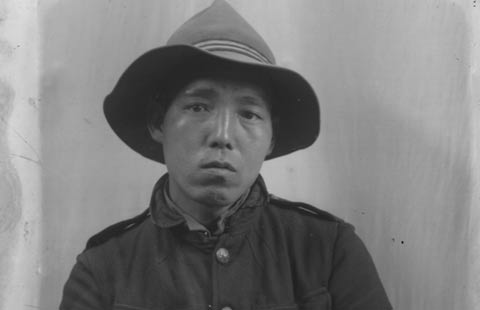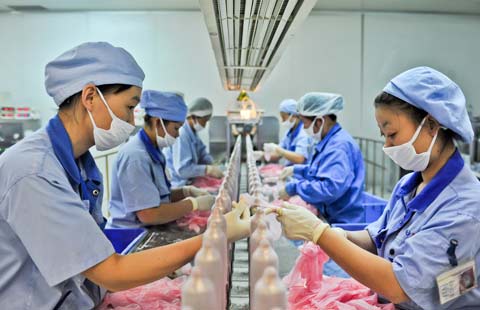Probe of judge for corruption raises concerns over influence
By Cao Yin (China Daily) Updated: 2014-07-18 07:08Judicial corruption has aroused the public's attention and become a concern once again with the investigation of a judge on suspicion of violations and breaching of discipline.
Li Wei, president of Dalian Intermediate People's Court in Liaoning province, is being investigated for alleged serious disciplinary violations, the provincial discipline inspection commission confirmed on its website on Monday.
Wang Yanshu, a resident of Dalian, said she was relieved to hear that Li was being investigated and that her frequent reports had finally brought results.
"Li interfered with my dispute with a property developer, and the verdict the court gave was ridiculous, as it wasn't written in legal language and wasn't made in accordance with laws," said Wang, who said she first reported her concerns about Li in 2006.
She said the court president "even revealed my case and breached my privacy to the local media before the judgment was announced, which was illegal and brought trouble for me", she said. "I reported it to a higher court and the city's legislature, but they always ignored me".
"I never saw Li appear on 'president day', the time he should receive and tackle litigants' reports," she said, adding that he never gave her a specific explanation.
In May, Wang heard that an inspection group under the central disciplinary authority had come to Dalian, and she submitted materials about Li.
"I'm encouraged by knowing Li had been investigated. It pulled me out of desperation. I just wanted a fair hearing of my case, but Li's behavior made me disappointed in the court over the past few years," she added.
The court did not comment on the investigation when contacted by China Daily.
In early July, Zhou Qiang, president of the Supreme People's Court, said in Jinan, Shandong province, that China's top court must adopt a zero-tolerance attitude toward judicial corruption and that every legal officer must be under stricter supervision.

Each court must find and correct disciplinary problems of judicial officers in a timely manner, and the courts are asked to strictly punish those who disobey laws and discipline, Zhou said.
Cheng Lei, an associate law professor at Renmin University of China, said the problem of judicial corruption is more serious in county-level and city-level courts, "as the top court's policy is harder to enforce there."
"Some presidents of courts at these levels have a lot of power to decide a case, or in other words, judgments are not made under laws. Administrative intervention has rotted the judicial system for a long time," Cheng said, adding that this can easily result in erroneous verdicts.
Cheng said it's good to see that most courts have been required to disclose verdicts online under the judicial reform brought about by the central government in November, but he added that judicial corruption cannot be rooted out entirely this way.
"If the president of a court is appointed by local government, such problems will still occur," he said.
Yang Weidong, a law professor with the Chinese Academy of Governance, echoed Cheng, saying that corruption among judges brings more negative effects to the public.
"Although the judicial system is a main target of Chinese disciplinary authorities, exposure like Li's is rare," Yang said.
caoyin@chinadaily.com.cn
- What drives some to arson?
- Typhoon Rammasun to land in south China
- 3,500 attend huge lecture at gym for graduate schools
- Japan's opposition leader visits Beijing
- Oil rig finishes exploratory drilling near Xisha Islands
- Police detain suspect in fatal bus explosion
- Floods still loom in SW China
- First lady shares love with HIV/AIDS children
- Senior officials in Jiangxi demoted for corruption
- Central govt to ensure policies enforced locally







